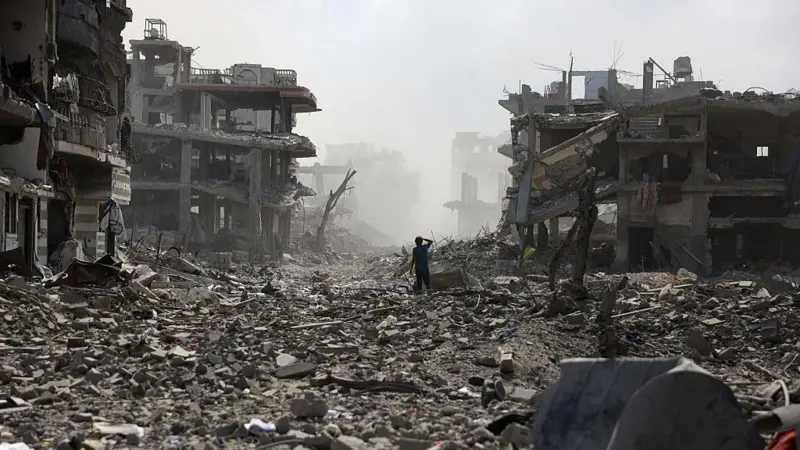As the war in the Gaza Strip continues, the Israeli army has declared that “the evacuation of Gaza City is inevitable”, as part of a plan to seize control of the largest city in the besieged enclave.
This comes amid U.S. and Israeli political moves, and international calls to halt the targeting of medical facilities and civilians.
Israeli Army Plan to Evacuate Gaza
Israeli Army spokesperson Avichay Adraee stated that residents should move to empty areas in the south of the Strip, such as the central camps and Al‑Mawasi, in exchange for greater humanitarian aid.
This includes tents, aid‑distribution hubs, water lines, and other facilities.
Meanwhile, Israeli ground forces continue operations on the outskirts of Gaza City, preparing for an assault to take control of the north of the Strip, focusing strikes on what they describe as “remaining Hamas strongholds”.
Washington’s Moves: Expanded Meetings and Post‑War Plans
U.S. President Donald Trump chaired an expanded meeting at the White House to discuss Gaza, attended by special envoy Steve Witkoff, who predicted a settlement before the end of the year.
The meeting coincided with talks in Washington between U.S. Secretary of State Marco Rubio and Israeli counterpart Gideon Sa’ar on military and political developments.
Witkoff confirmed Israel’s openness to negotiations with Hamas, noting signs that the movement was ready to reach a settlement.
However, Israel’s Channel 13 reported that Tel Aviv rejects the partial proposal accepted by Hamas, insisting instead on a comprehensive deal to end the war on its terms.
Humanitarian Situation: Deaths, Injuries, and Medical Facility Strikes
According to the Palestinian news agency WAFA, four Palestinians were killed while waiting for aid near Khan Younis, and Israeli strikes killed another 11 and wounded 30 within 24 hours.
War statistics as of Tuesday show:
- 62,819 killed
- 158,629 injured
- Over 9,000 missing
- Hundreds of thousands displaced
- 303 starvation deaths, including 117 children
The International Committee of the Red Cross described the targeting of medical facilities – including Nasser Medical Complex – as “unacceptable,” urging respect and protection for medical staff and journalists in line with international humanitarian law.

Protests in Israel Pressuring the Government
In Tel Aviv, protesters blocked main roads, waving Israeli flags and photos of hostages to demand an end to the war and a prisoner‑exchange deal.
Others demonstrated outside ministers’ homes as the Israeli Security Cabinet (“the Cabinet”) met.
Prime Minister Benjamin Netanyahu, after the meeting, declared: “It began in Gaza and it will end in Gaza”, affirming that military operations will continue.








